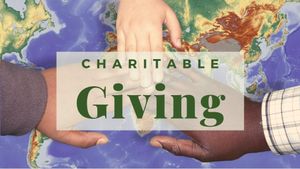Eight lives were tragically lost when a small migrant boat capsized off the coast of Samos, Greece, according to local officials. Among those who perished were six children and two adult women. The incident highlights the continuing dangers faced by migrants attempting to cross do the Aegean Sea, often embarking on perilous journeys to escape crisis-stricken regions only to find themselves vulnerable to tragedy.
Survivors from the wreck spoke about their ordeal, which left 36 individuals rescued on the rocky shoreline of Samos. Efforts to find any missing migrants were complicated by the fact the survivors could not confirm the exact number on board at the time of the sinking. The Greek Coast Guard, along with local naval vessels and emergency responders, launched extensive search operations, including the deployment of helicopters, to search for any potential casualties.
This incident follows another heartbreaking occurrence whereby another migrant group, consisting of 27 individuals, landed on Lesbos. Unfortunately, during disembarkation, one elderly man died, making the narrative of tragedy deepen with each passing moment. Miraculously, the remaining 26 migrants were located safe and sound, as authorities reported no one was missing.
The recent surge of migration across the Mediterranean has been linked to various conflicts and crises plaguing the Middle East. Greece’s position as a gateway to Europe means islands like Samos continuously see waves of migrants arriving, many fleeing war and persecution. Amidst the tragic loss of life, Greece's Minister for Migration, Nikos Panagiotopoulos, voiced deep sorrow and anger, condemning the organized human-smuggling networks responsible for guiding these at-risk individuals toward disaster.
“The shipwreck on Samos, with the loss of eight innocent lives, including six children, fills us with sadness and anger,” Panagiotopoulos said. “The unscrupulous criminals who trade in human lives will meet with our determination to eradicate their activities.” Such comments underline the challenges Greece faces as it grapples with the dual pressures of humanitarian support for migrants and enforcement against criminal networks.
Data from the United Nations paints a troubling picture of the situation facing migrants. The organization indicated more than 54,000 people have entered Greece through illegal channels this year alone, with most arriving from Turkey. A significant rise has also been noted for dangerous crossings from Libya, adding another unpredictable risk for those seeking refuge.
These rising numbers mirror the escalation of crises around the globe, prompting increased migration pressures. To date, throughout 2023, nearly 49,000 individuals have reached Greece illegally, drawn by hopes for safety and new beginnings, only to encounter the stark realities of perilous sea journeys.
Greece's geographical position places it at the forefront of this migration crisis, provoking debates and challenges within the European Union concerning border control, refugee treatment, and the urgent need for stable pathways for migrants. With each loss mirrored by more desperate attempts at crossing, Greece continues to walk the tightrope between compassion and security.
This latest tragedy is not merely another statistical tragic event, but rather, it also involves deeply human stories of families and individuals chasing dreams of safety and stability. Each number has a name, each life lost carries unfulfilled potential, and as the crises continue, countries must band together to formulate humane and effective solutions to the hardships faced by those fleeing their homelands.
For now, the search continues, and the hope rests on the need for lasting political and humanitarian solutions. Greece and the neighboring Aegean islands remain key regions under scrutiny, struggling under the weight of their strategic positions as entry points to Europe.



